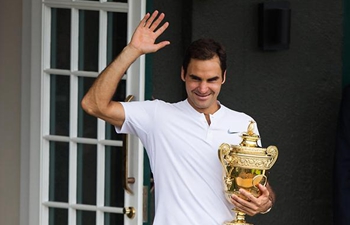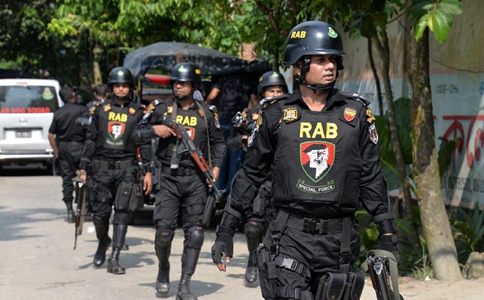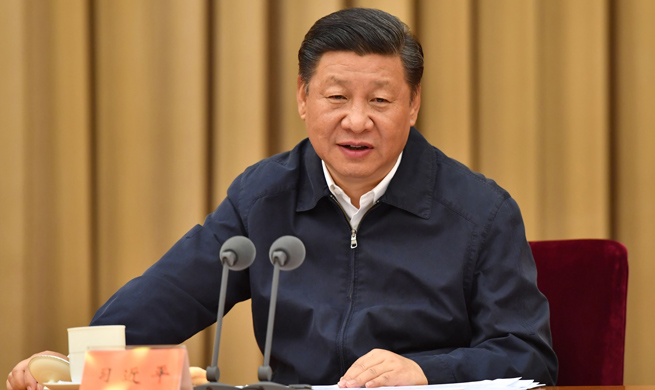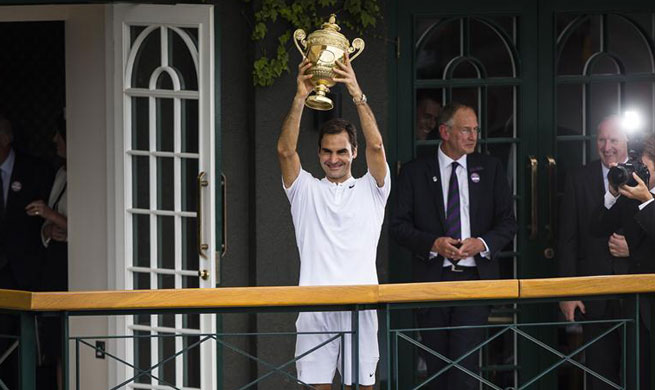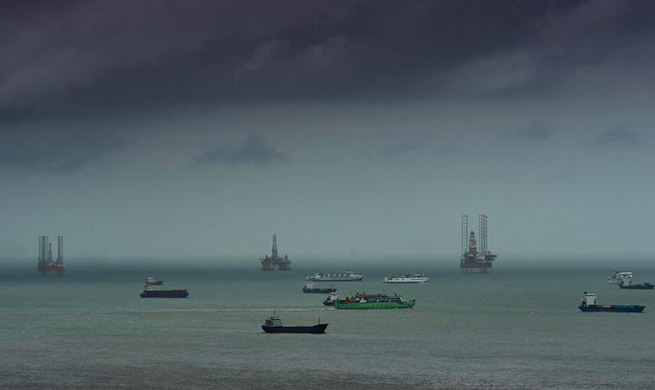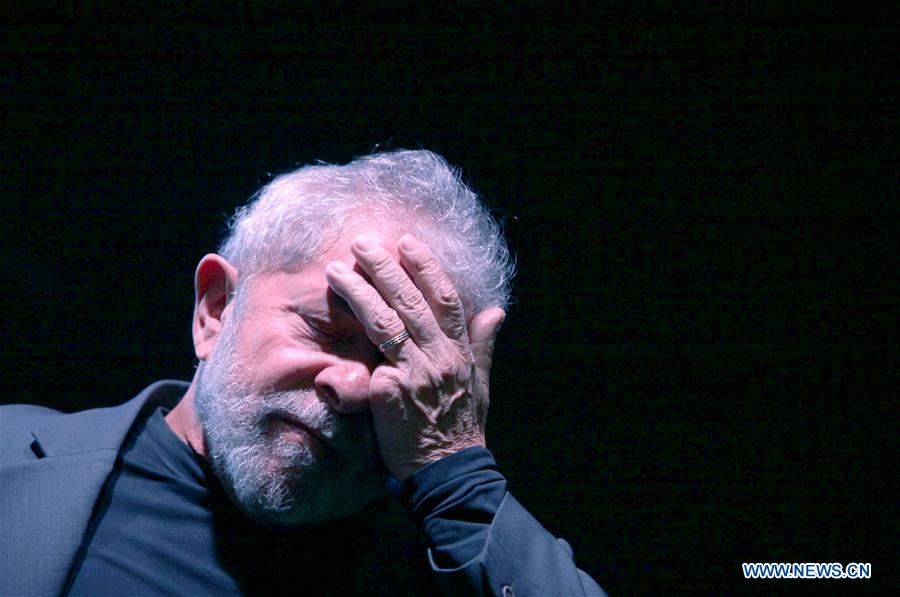
File photo taken on July 24, 2015 shows Luiz Inacio Lula da Silva reacting during an event in Sao Paulo, Brazil. Former President of Brazil, Luiz Inacio Lula da Silva, was sentenced to nine years and six months in prison for his involvement in the plot corruption that diverted thousands of millions of U.S. dollars from the state oil company Petrobras, official sources said on July 12, 2017. (Xinhua/AGENCIA ESTADO/DIARIO DO GDE ABC/Ricardo Trida)
by Edgardo Loguercio
BRASILIA, July 16 (Xinhua) -- Brazil's political crisis saw fresh developments this week after a congressional commission rejected the corruption charges against President Michel Temer, while former president Luiz Inacio Lula da Silva was sentenced to nearly 10 years in prison for corruption.
Far from stabilizing matters, the developments are only increasing the uncertainty. Temer survived the vote in the Chamber of Deputies' Commission on Constitution, Justice and Citizenship (CCJ) because his allies swapped 13 members of the CCJ at the last minute.
This marked the first time a sitting president has received criminal charges. The case against Temer began in May when Joesley Batista, owner of the meatpacking group JBS, confessed to investigators that he had paid bribes to the president. He also turned over an audio recording, in which Temer can seemingly be heard signing off on bribing public officials.
The CCJ vote is a plus for Temer, but it is only a non-binding recommendation for the Chamber, which is set to vote on the charges after its current two-week recess.
According to Ricardo Caldas, a professor of political science at the University of Brasilia, the government obtained some breathing space through this victory, especially after the Senate approved Temer's landmark labor reform.
"Temer's victories with the approval of the labor reform and in the CCJ were positive. He reinforced his image somewhat, he won some time. His margin of operation increased. His exit is not a done deal," Caldas told Xinhua.
"At some point, Temer will face trouble to continue. I feel the president will not make it to the end of the government, but there is no doubt that he increased his chances of political survival this week," he added.
The ongoing political crisis was complicated by a lack of positive signs in the economy.
On Friday, the Central Bank announced that economic activity had contracted by 0.51 percent in April. This somber situation shows that the 1 percent growth seen in the first quarter, after two years of recession, has not continued.
Such permanent stagnation is favoring the opponents of the government. Yet Lula, who has been regarded as the presumptive favorite for the 2018 elections, is now facing being barred from holding public office.
Federal Judge Sergio Moro found Lula guilty on charges of receiving bribes from the construction company OAS S.A., although the former president has firmly denied the accusation.
The verdict will only apply if Lula loses his appeal and he has combatively vowed to run for president next year.
"The condemnation of President Lula was expected. Uncertainty remains over whether he will be a candidate or not, but ... I do not think he will," Caldas said.
Lula's appeal could last from six to 18 months, meaning that, if it is drawn out, he might still have a chance.
Brazilian political forces on all sides are taking advantage of the current recess to debate potential strategies.
For Temer and the government, the main risk comes from the Chamber of Deputies. If the Chamber sees a two-thirds majority, or 342 votes, in favor of the charges, the case will return to the Supreme Court, which will decide on whether or not to put Temer on trial.
If so, the president will step down for up to 18 months while an impeachment process begins. Chamber of Deputies Speaker Rodrigo Maia would assume the presidency in an interim capacity.
Both sides have agreed to hold a full Chamber vote on Aug. 2, but a debate may push this back.




